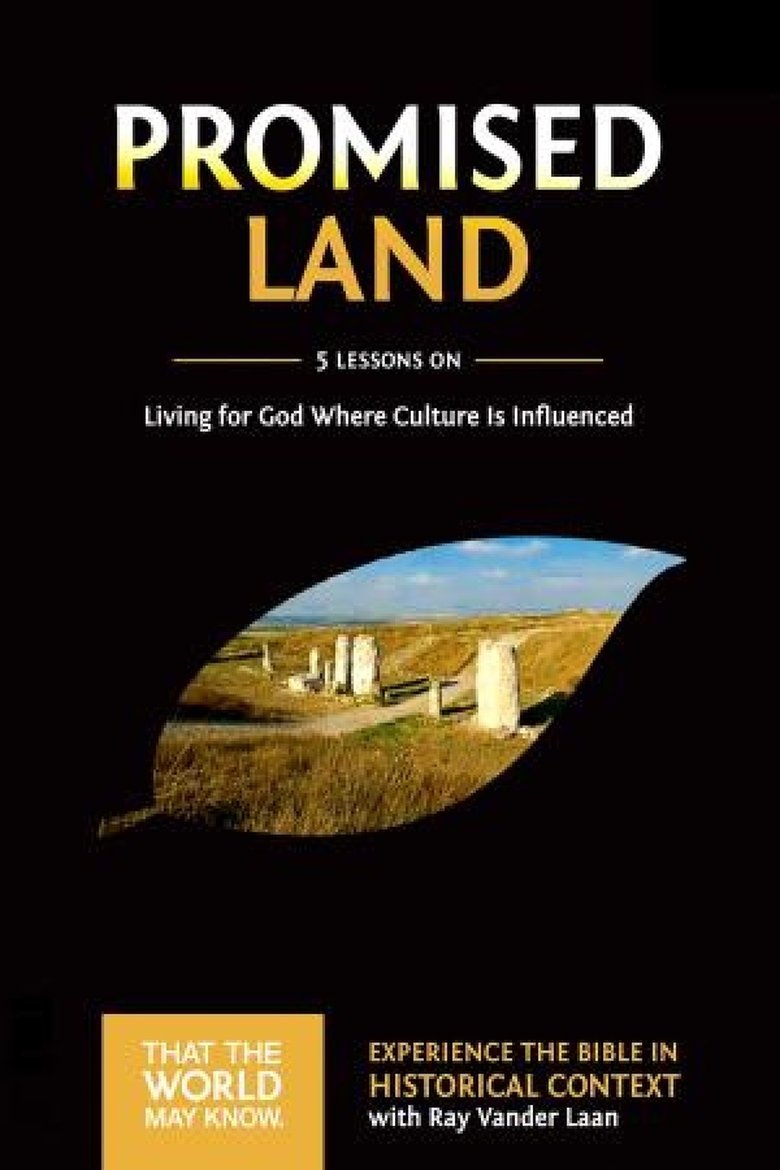
Volume 1: Promised Land
Travel to Israel and radically change your understanding of the Scriptures. Wet your feet in the Jordan River and impact the culture with life-giving water. Show your trust in the Lord's provision by offering up first fruits at Jericho. And cleanse the land by confronting evil and using the tools of society to redeem your world for God. In this first volume of the That the World May Know series, historian and teacher Ray Vander Laan will show you how God guided his people to a specific place - the Promised Land - to impact the world both in ancient times and today. Experience the Bible in historical context!
(formerly known as Faith Lessons)
01. Standing at the Crossroads
Lesson 1.1 | Standing at the Crossroads
Living for God Where Culture Is Influenced
The Promised Land, specifically the ancient city of Tel Gezer, served as a crucial crossroads for major trade routes, such as the Via Maris. God intended for Israel to exert influence over the surrounding nations through their faithful lives in this strategically important location. Just as the Hebrew people were shaped by their land and culture, this lesson suggests that the current time and place can influence lives and journeys. The lesson posits that, just as God called the ancient culture of Gezer to impact the world for His glory, all are called to do the same today.
02. Wet Feet
Lesson 1.2 | Wet Feet
Living for God Where Culture Is Influenced
The lesson focuses on the Israelites' crossing of the Jordan River, a key event in their history and a strong symbol of faith and obedience. The Israelites faced a challenge: the Jordan River at flood stage. This event illustrates the choice between trusting God's power and letting fear control actions. Showing faith was demonstrated by entering the water, even when it seemed impossible. This lesson posits that the same faith that helped the Israelites cross the Jordan at its flood stage can also release God's power in our lives today through full commitment and trust in him.
03. First Fruits
Lesson 1.3 | First Fruits
Living for God Where Culture Is Influenced
The lesson explores the biblical concept of first-fruits, which represents the giving of the first and best of one's produce or possessions to God as an acknowledgment that everything comes from Him. This offering was also an expression of faith and trust that God would continue to provide. Jericho, as the first city the Israelites conquered in the Promised Land, served as a "first-fruits" offering to God. God instructed the Israelites to leave it in ruins and not rebuild it, signifying that it belonged to Him.
The act of giving first-fruits demonstrated the Israelites' trust in God's ability to provide for their future needs. By giving the first part of their harvest, they expressed their faith that God would bless the rest. The lesson suggests that faithfully giving God our first-fruits allows the world to see God's power and provision, rather than our own. This can impact the culture around us with the gospel.
04. Confronting Evil
Lesson 1.4 | Confronting Evil
Living for God Where Culture Is Influenced
The lesson is filmed in Tel Beth Shemesh, a significant location in the Promised Land, which provides a backdrop for exploring the challenges of living faithfully amidst societal pressures and cultural influences. The story of Samson is used to illustrate the dangers of succumbing to the surrounding culture's evils. Samson, despite his strength, ultimately failed to be a distinct witness for God due to his entanglement with the Philistine way of life. The lesson emphasizes that to effectively influence modern society, believers must live lives that are distinct from the world, exhibiting virtue and godliness. This means living in accordance with God's principles and values, rather than conforming to cultural norms that contradict them.
05. Iron of Culture
Lesson 1.5 | Iron of Culture
Living for God Where Culture Is Influenced
In ancient times, the control of iron technology represented power and influence. The Philistines, with their mastery of iron, initially held an advantage over the Israelites. The lesson explores how, around the time of King David, the Israelites learned to work iron, becoming the dominant culture in the region. It is suggested that David may have learned this technology while living among the Philistines. The lesson draws a parallel between ancient "iron" and the tools and technologies of our modern culture, such as law, education, music, politics, and the internet. These are presented as means by which believers can positively influence the world.